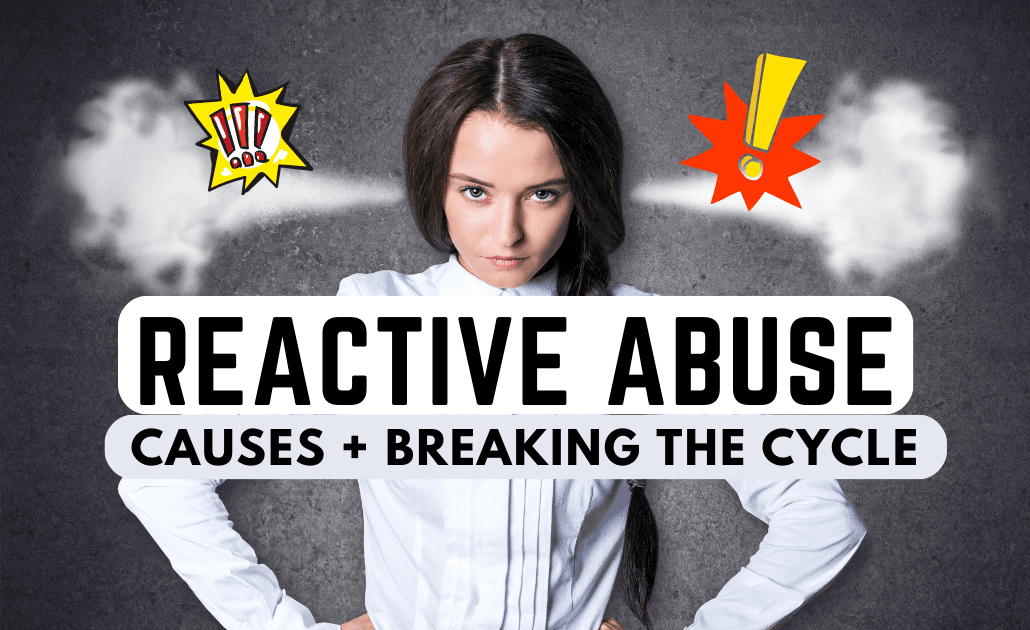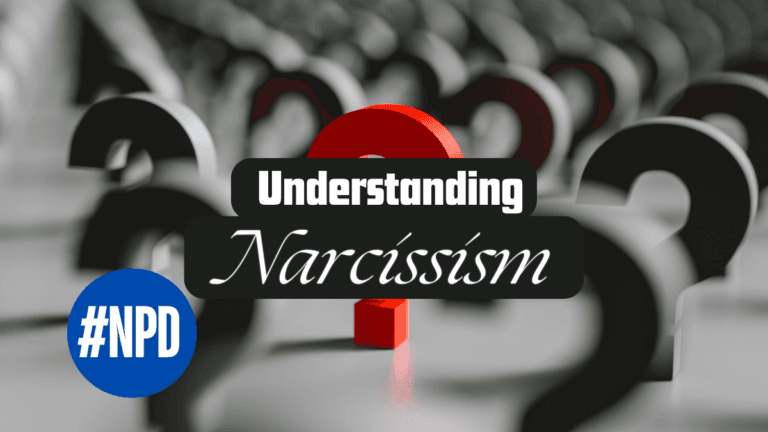Reactive Abuse: 3 Causes and Breaking the Cycle
Survivors of narcissistic abuse often find themselves entangled in a web of emotional turmoil, leaving them bewildered by their own reactions.
Reactive abuse is a lesser-known aspect of the abusive dynamic, where victims respond in ways that may appear aggressive or irrational. This article aims to shed light on reactive abuse, explaining its nature, the reasons behind its occurrence, and empowering survivors to recognize and address this response in their healing journey.
Related: Learn about the Cycle of Abuse
What is Reactive Abuse?
Reactive abuse is a defensive reaction that victims of narcissistic abuse may display when pushed to their emotional breaking point.
In this scenario, the abuser provokes the victim through manipulation, gaslighting, and emotional coercion until the victim reacts with anger, frustration, or even aggression.
The abuser then uses this response to further belittle and demean the victim, perpetuating the cycle of abuse.
Recognizing Reactive Abuse
Victims of narcissistic abuse may be unaware of reactive abuse patterns, as the abuser skillfully manipulates the narrative to place the blame on them. Recognizing reactive abuse requires a keen understanding of the following signs:
a. Provocation Patterns: Notice if there is a consistent pattern of the abuser pushing the victim’s emotional buttons to elicit a reaction.
b. Disproportionate Reactions: Observe if the victim’s reactions seem excessive compared to the perceived trigger, signaling the possibility of reactive abuse.
c. Loss of Self-Control: Victims might feel overwhelmed by their emotional reactions, struggling to maintain composure during conflicts.
d. Feeling Remorseful: After reactive abuse episodes, victims often feel guilty and ashamed of their behavior, which the abuser may exploit to further manipulate them.
Causes of Reactive Abuse
Understanding the underlying causes of reactive abuse can be empowering for survivors. Common triggers include:
a. Emotional Exhaustion: Prolonged exposure to gaslighting and manipulation can lead to extreme emotional fatigue, making it difficult for victims to respond rationally.
b. Self-Preservation: Reacting defensively becomes a survival mechanism for victims, as they attempt to protect their self-worth and boundaries.
c. Emotional Triggers: The abuser may exploit known vulnerabilities or traumas to evoke a response, capitalizing on emotional wounds.
Why It's Exhausting to be with a Narcissist
Breaking the Cycle and Healing
Empowering survivors to break free from the cycle of reactive abuse is crucial for their healing journey. Here are practical steps to aid in the process:
a. Self-Awareness: Recognize and accept your reactive responses without self-blame. Acknowledging your emotions is the first step towards healing.
b. Establish Boundaries: Set clear boundaries with the abuser, limiting their ability to provoke reactive responses.
c. Seek Support: Reach out to friends, family, or a therapist who understands narcissistic abuse and can provide guidance in the healing process.
d. Focus on Self-Care: Engage in self-care practices that promote emotional well-being and reduce stress.
e. Detachment: Work towards emotional detachment from the abuser’s tactics and manipulations.
Reactive abuse is a complex and often misunderstood aspect of narcissistic abuse. By recognizing the signs and understanding its roots, survivors can take steps towards breaking free from the cycle of abuse and embarking on a journey of healing and empowerment.
Remember, seeking professional support is invaluable in navigating the aftermath of narcissistic abuse and reclaiming your life. You are not alone, and healing is possible.
- Have you ever felt overwhelmed by your emotional reactions in an abusive relationship?
- Do you recognize any patterns of provocation and reactive responses in your interactions with a narcissistic abuser?
- Are you ready to break free from the cycle of reactive abuse and start your journey to healing and empowerment?







